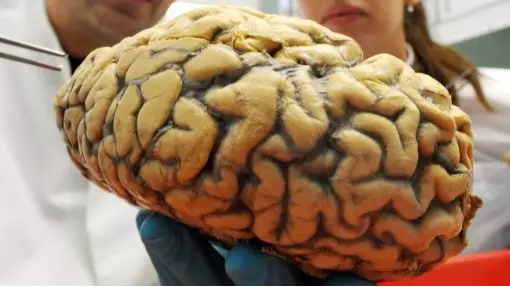
Scientists in France have used nerve stimulation to induce some signs of consciousness in a man who has been in coma for almost half his life.
Although the 35-year-old isn't fully conscious, the landmark case demonstrates somebody can be awoken from a vegetative state after a much greater time than previously thought.
As a general rule of thumb, the longer a person is in such a state, the less likely they are to recover. A year without increases in consciousness is usually viewed as the point where waking is unlikely to occur.
The man was diagnosed as being in a state of 'unresponsive wakefulness' after a car accident in 2001 - meaning he had no awareness of self or his environment.
However, this all changed when Angela Sirigu, of the French National Centre for Scientific Research in Bron, and her colleagues trialled a new technique that focused on the vagus nerve.
An important part of the human nervous system, the vagus nerve runs from the brain to several areas of the body. It modulates the nervous system that controls important processes such as heart rate and lung function.
In surgery that took just 20 minutes, a small implant was placed around the nerve. After a month of stimulation of the vagus nerve with a current of around a milliamp, the man was able to turn his head on request - additionally, his eyes could follow a moving object and would open when somebody approached him rapidly.
Alongside this, Sirigu reports that he showed increased levels of brain activity as measured by a electroencephalogram (EEGs).
Angela Sirigu, who led the work, said: "He is still paralysed, he cannot talk, but he can respond. Now he is more aware."
Niels Birbaumer, of the University of Tübingen, is a pioneer of brain-computer interfaces to help patients with neurological disorders communicate - he said the findings, published in the journal Current Biology, raised a number of ethical issues.
Advert
"Many of these patients may and will have been neglected, and passive euthanasia may happen often in a vegetative state," he said. "This paper is a warning to all those believing that this state is hopeless after a year."
Following the procedure going well, the team now would like to continue their research and study why the technique has been successful and see how they can use it to help other coma patients.
Great work going on. Hats off to the science LADs.
Source: New York Post and New Scientist
Featured Image Credit: PA Images